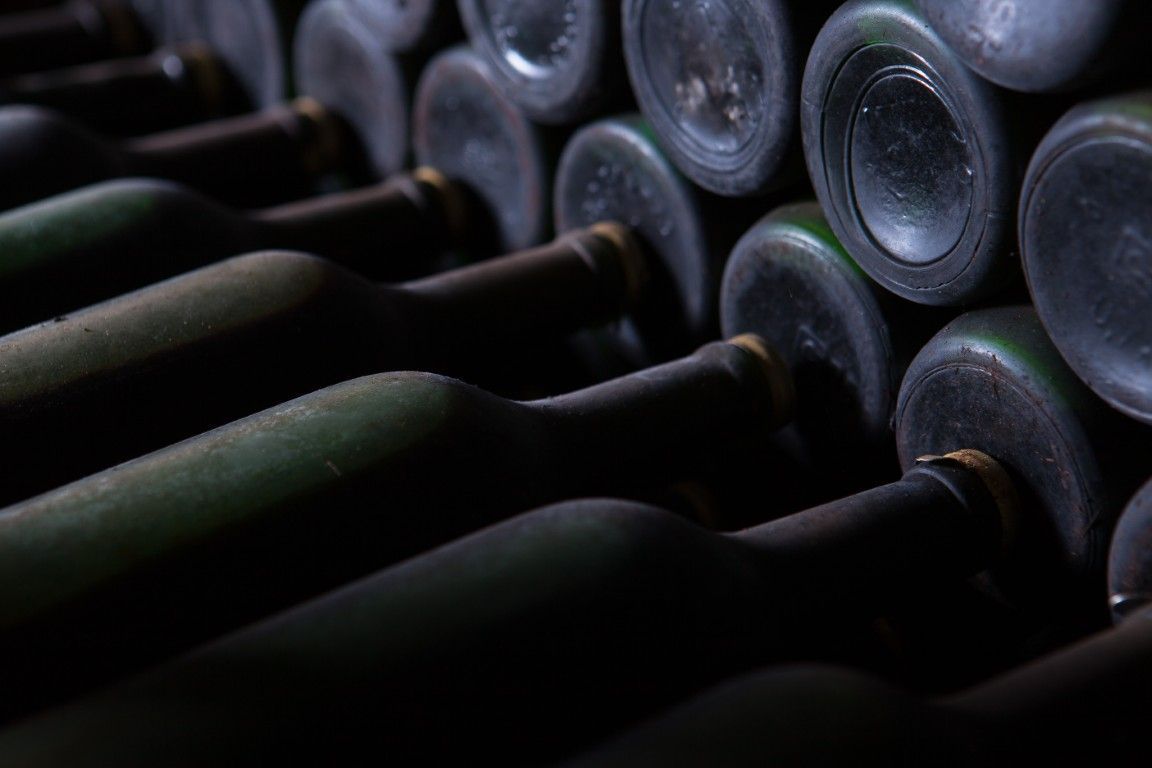Did you know that you can help reduce environmental impact while enjoying a delicious wine? That’s right! By consuming organic wine and supporting its eco-friendly production process, we can contribute to sustainable farming practices, support small producers, and reduce exposure to synthetic chemicals.
At Excellent Cork, we promote responsible production and consumption by manufacturing bio bottle stoppers, enhancing their reusability. In this article, we will tell you about organic wine and its characteristics.
Differences between organic and conventional wine
The main **difference between organic wine and conventional wine** lies in cultivation and winemaking practices. Organic wine is produced with sustainability in mind and aims at **reducing environmental impact**, while conventional wine can use a wider range of chemicals and more traditional intervention techniques. 
Benefits of organic wine
Organic wine has several benefits. Here are some:
- Lower environmental impact: Organic vineyards avoid the use of pesticides, herbicides, and synthetic fertilizers, reducing soil and water pollution and helping to preserve biodiversity. Additionally, they improve soil health by using organic fertilizers.
- Natural production process: Organic winemaking methods tend to be less interventionist, resulting in a final product with a more authentic expression of the grapes.
- Health benefits: Organic wines have less exposure to pesticides, and some studies suggest they may have higher antioxidant content due to agricultural practices that promote vine health.
- Support for local agriculture: Many organic wine producers are small, family-owned vineyards that prioritize sustainability and quality over quantity. Supporting these producers can strengthen local economies and rural communities.
Process of making organic wine
The **organic winemaking process** is based on sustainability and minimizing environmental impact.
Although the basic winemaking process is similar to conventional wine, there are key differences in practices and techniques, such as growing without pesticides or synthetic fertilizers, manual harvesting to select only the best grape clusters, fermentation using natural or organically sourced yeasts, etc.
Types of organic wine
It might seem like there’s only one type of organic wine, but actually, organic wine (also called “natural wine”) is categorized similarly to conventional wines, depending on the grape type, production method, and characteristics of the wine.
Thus, you can find organic red wine, organic white wine, organic rosé wine, organic sparkling wine, and organic natural wine.
Organic wine without sulfites
There is a growing demand for **organic wines without added sulfites**, as they represent an interesting option for those looking for a more natural product that is possibly less reactive for people sensitive to sulfites.
Though they present challenges in preservation and consistency, they also offer an authentic flavor experience and a commitment to sustainability.
Organic white wine
**Organic white wine** is an excellent choice for consumers seeking a sustainable, high-quality product. With a wide variety of styles and flavors, these wines offer an authentic expression of the terroir and the grape’s characteristics.
Organic cava
**Organic cava** is a type of sparkling wine produced in the region of Catalonia, Spain, made following the principles of organic viticulture, including these types:
- Organic Brut Nature Cava: No sugar is added after fermentation, resulting in a dry and fresh cava.
- Organic Brut Cava: Contains a small amount of added sugar, offering a balance between freshness and smoothness.
- Organic Rosé Cava: Made from red grapes such as Garnacha, Trepat, or Pinot Noir, with a fresh and fruity profile.
- Organic Reserva and Gran Reserva Cava: These have more aging time in the bottle, providing complexity and depth of flavor, with notes of toasted bread and nuts.
Comparison between organic and traditional wines
The choice between organic and traditional wines depends on consumer priorities. Organic wines offer environmental benefits, sustainable farming practices, and a more natural expression of the wine.
On the other hand, traditional wines may offer consistency and quality control but with a higher environmental impact and potential chemical residues. Both types of wine have their place in the market and can provide unique and satisfying tasting experiences.
How to identify organic wine
To identify an organic wine, look for official certifications and seals on the label, pay attention to specific mentions of organic practices, research information provided by the producer, and shop at specialized stores.
By following these steps, you can ensure you’re choosing a wine produced in an environmentally friendly and sustainable way.
Frequently asked questions about organic wine
Here are answers to other common questions about organic wine.
What does it mean when a wine has no sulfites?
A wine without sulfites means no sulfur compounds were added during production. This can result in a more natural drink that may be less allergenic for some people. However, these wines may have a shorter shelf life and require more careful handling. When choosing a wine without sulfites, it’s important to consider the health and taste benefits along with the production and preservation challenges.
What are the benefits of polyphenols in organic wine?
Polyphenols in organic wine offer a wide range of health benefits, from cardiovascular protection to anti-inflammatory and neuroprotective effects. Thanks to sustainable agricultural practices, organic wines may contain higher levels of these beneficial compounds, providing a healthier, more natural option.
How does the production region affect the flavor of organic wine?
The production region has a significant influence on the flavor of organic wine. Factors such as climate, soil, vineyard orientation, and viticultural practices contribute to the wine’s unique characteristics. Understanding the terroir of a specific region allows wine lovers to better appreciate the nuances and complexity that each region brings to organic wines.
What certifications should organic wine have?
To identify organic wine, look for official certifications and seals on the label, such as the European Union’s organic farming seal (EU Organic) or recognized local certifications. These certifications ensure that the wine has been produced following strict organic farming and sustainability standards.
Why choose organic wine over conventional wine?
Choosing organic wine over conventional wine has several benefits: less environmental impact due to the absence of pesticides and synthetic fertilizers, more natural production, which may result in a more authentic expression of the grapes, and support for small producers and sustainable farming practices. Additionally, organic wines may have higher levels of antioxidants, offering additional health benefits.
Is organic wine more expensive than conventional wine?
The price of organic wine can be higher due to sustainable production methods and the smaller scale of production compared to conventional wine. However, many consumers find the health and environmental benefits, as well as the quality of the product, to justify the additional cost.
How can I properly store organic wine?
Proper storage of organic wine is similar to conventional wine: it should be kept in a cool, dark place with consistent humidity. However, wines without added sulfites may be more sensitive to storage conditions, so it’s important to follow the producer’s recommendations to ensure the best preservation.





